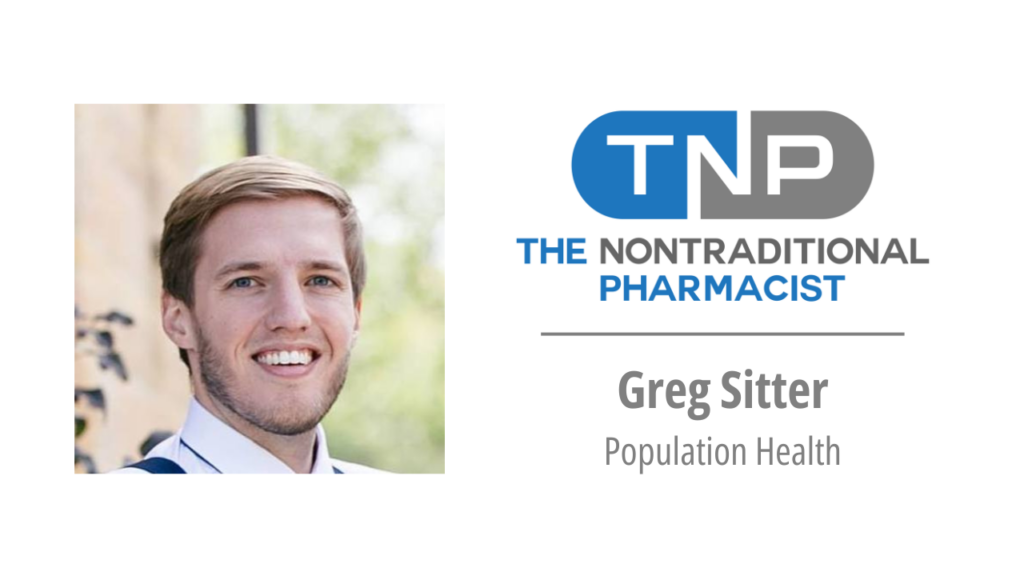Greg Sitter, PharmD, BCMAS, has taken his pharmacy career far beyond the traditional script—literally and figuratively. What began as a willingness to serve during the COVID-19 crisis led him to roles in global health, refugee care, and international emergency response. In this interview, Greg shares how a pharmacist’s skill set translates far outside the walls of retail or hospital practice—and why trusting your instincts, embracing ambiguity, and staying connected can lead to a career you never expected, but always wanted.
Embracing Nontraditional Pharmacy Roles
Greg Sitter, PharmD, BCMAS, transformed his passion for exploration and adaptability into a global health career far beyond the traditional pharmacy path. From leading mass vaccination sites to helping establish field hospitals for refugees, Greg’s journey shows how pharmacists can apply their skills in high-impact, unconventional ways. Below, he shares insights into the unique roles he’s taken on and the lessons he’s learned along the way. In an era where pharmacists are being asked to do more with less, Greg’s story reminds us just how adaptable and valuable our training can be; especially outside the traditional path.
What inspired you to pursue a nontraditional path in pharmacy, and how did you identify this unique opportunity?
My decision to pursue a nontraditional path in pharmacy is founded in my passion for exploration. I absolutely love to travel and learn how other cultures handle situations we barely even notice in our day-to-day life. There was also a desire for more variety—I needed a challenge that would allow me to use my creativity and adaptability.
My original entry into nontraditional pharmacy roles came about with the onset of the COVID-19 pandemic. Stories highlighting the need for healthcare workers in crisis areas were prevalent. I found an opportunity with the California Department of Public Health and FEMA, helping to run the nation’s largest mass vaccination site. Later, a government representative impressed with my work invited me to set up a field hospital for Afghan refugees in New Jersey. When International SOS secured a similar operation in Qatar, I was eager to reprise my role.
What specific skills or experiences from your traditional pharmacy background have been most valuable in your nontraditional career?
Pharmacists are medication experts, so bringing clinical knowledge—and more importantly, knowing how to find clinical answers—has been vital.
Another key skill has been managing people from diverse backgrounds. Retail pharmacy provided experience working with patients and staff from varied perspectives, and insight into process improvement. My traditional roles refined these people and process improvement skills, enabling me to build field hospitals in challenging environments with limited resources.
What challenges did you face when transitioning from a traditional pharmacy role to a nontraditional one, and how did you overcome them?
Pharmacists often have a reputation for being detail-oriented and rule-following. The operations I joined had never been done before, so despite certain rules, guidelines were noticeably absent. We had to create formularies, inventory systems, workflows, and record systems from scratch while actively caring for over 18,000 Afghan guests. Prioritizing what was most essential and leveraging previous experience helped us balance immediate patient care with system creation.
Working internationally also posed challenges, especially in Qatar, where we navigated American laws to acquire medications. The hospital staff, coming from diverse international backgrounds, initially struggled with varying healthcare terminologies and cultural expectations. Clear communication and reinforcing teamwork significantly improved workflow and collaboration.
What advice would you give to pharmacists or pharmacy students interested in exploring nontraditional career paths?
Identify transferable skills. Pharmacists are trained in more than medication management; organizational skills apply to project management, complex information translation suits teaching roles, and attention to detail fits quality assurance or software coding. Every pharmacist possesses a diverse skill set.
Network broadly. It’s critical to build relationships across all team levels. Connections I’ve maintained—from nurses to military personnel—have opened doors to unique opportunities. Without my network, I likely would have returned to traditional roles.
Take the leap and trust your gut. When I accepted my first contract in California, I had no idea I’d be creating cold chain systems and drafting SOPs for nationwide vaccine efforts. Find your passion and explore how your pharmacist perspective can enhance it. Every experience outside your comfort zone enriches your career.
How do you see nontraditional roles for pharmacists evolving in the future, and what opportunities should current pharmacists be looking out for?
Nontraditional roles will expand as technology advances and healthcare evolves. With online knowledge and AI, society increasingly favors integrators who bridge various disciplines. Pharmacists possess scientific knowledge and interpersonal skills, positioning them as connectors in business, health economics, politics, policy, data analytics, or technology development. The pharmacist role has evolved significantly, and though I can’t predict precisely how, our future will likely center around linking health, technology, and people.
Key takeaways
Embrace New Challenges:
Greg’s curiosity and willingness to step outside his comfort zone led him to unique pharmacy roles. Taking on new opportunities—especially during crisis situations—can open doors you never imagined.
Traditional Skills Transfer to New Roles:
Your pharmacy training provides a broad range of transferable skills, such as clinical expertise, adaptability, organization, and people management. Recognizing these skills can help you identify opportunities outside traditional settings.
Networking is Crucial:
Building genuine relationships across professions can significantly influence your career trajectory. Greg emphasized that staying connected with professionals beyond pharmacy opened doors to unexpected and fulfilling career opportunities.
Be Comfortable with Ambiguity:
Nontraditional roles often lack predefined rules and procedures. Greg highlighted the importance of creativity and flexibility in rapidly evolving situations—valuable attributes for pharmacists looking to explore unconventional paths.
The Future of Pharmacy is Expanding:
Pharmacy roles are evolving rapidly, influenced by technology, healthcare trends, and society’s changing needs. Pharmacists should proactively look for areas to apply their clinical knowledge in emerging fields, such as data analytics, health policy, or technology integration.

